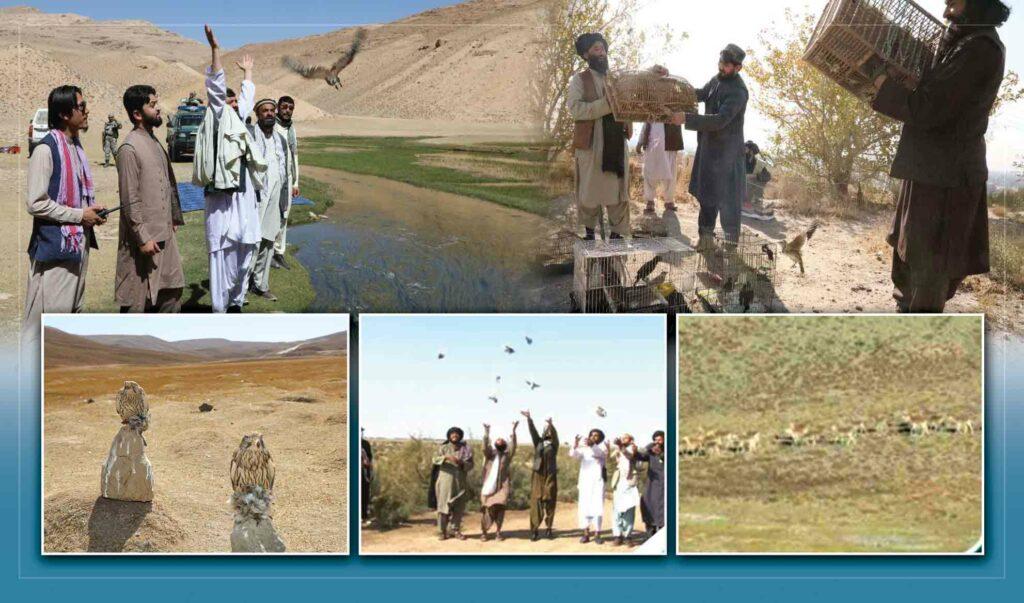KABUL (Pajhwok): The National Environmental Protection Agency (NEPA) says it prevented 26,000 wild animals from being hunted in different provinces and arrested 71 poachers in the past three years.
NEPA deputy director Dr. Zainul Abedain Abid told Pajhwok Afghan News wildlife was Afghanistan’s national treasure and its protection was everyone’s responsibility.
He said in compliance with Islamic Emirate’s order, hunting of wild animals has been banned to protect them.
The hunting of 26,000 wild animals has been prevented in different provinces of the country in the past three years, he added.
According to Abid, 71 people were detained in connection with hunting and handed over to judicial organs. Most of these hunters are Afghan citizens.
NEPA has tried to raise awareness among the general public in all provinces so that they do not hunt wild animals and consider animals as a beauty for their province, Abid explained.
The past four decades of war had a negative impact on people and also on wildlife, and some wild animals had migrated to other countries.
Since Islamic Emirate takeover, hunting of wild animals has been banned and some of these animals have returned to the natural environment of Afghanistan.
However, some experts explain if hunting is prevented, the number of animals will increase again.
Mohibullah Fazli, an expert, told Pajhwok a large number of Afghanistan’s wild animals are the verge of extinction due to threats such as hunting, trafficking, climate change, or other reasons.
He said since IEA takeover, strict attention has been paid to preventing the hunting of wild animals and their illegal trade.
When hunting increases, certain cycles in the environment and ecosystem are disrupted and threats arise. When it’s prevented the wild animals also surged in nature.
The IEA can offer animals that are in large numbers for hunting and use them as a source of income.
Meanwhile, Najibullah Sadid, another expert, told Pajhwok wildlife plays an essential role in the food chain, and biodiversity is actually ensured by animals and plants.
Excessive and unnecessary hunting of wild animals should be prevented so that the natural food chain and biodiversity in nature can be preserved forever.
On the other hand, Wasim, a resident of eastern Nangarhar province, told Pajhwok for 30 years, they have been hunting a bird named Man wa Salva.
Wasim asked the IEA to provide them with hunting grounds and added they would not hunt animals that would damage the beauty of nature.
According to Kalam Khan, a resident of Khost, hunting of endangered species should be prevented. He is also happy that hunting of wild animals has been banned.
Timor Shah, Kabul resident, explained in previous government, hunters would bring various types of wild animals to Khah Frushi Street in Kabul city for sale, but now they are no longer being brought.
Other residents also expressed similar views.
Afghanistan’s geographical structure and ecological system have created a fertile ground for life and growth of various animals and plants.
hz/ma







GET IN TOUCH
NEWSLETTER
SUGGEST A STORY
PAJHWOK MOBILE APP